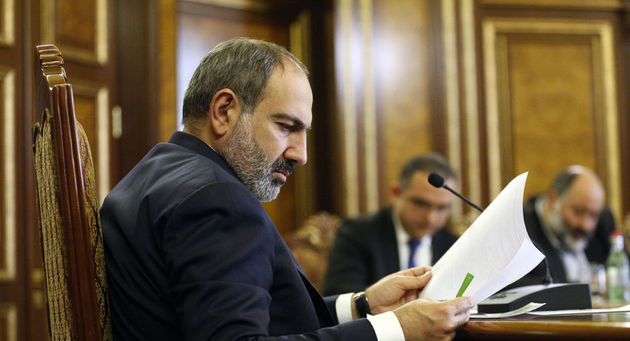Adopted yesterday joint statement of the European Parliament (EP) rapporteurs on Azerbaijan and Armenia, condemning the occupation of Azerbaijani territories by Armenia and calling on the parties to show readiness for a peaceful settlement of the conflict within the framework of the internationally recognized borders of Azerbaijan, is, in any case, an unfavorable signal for the Prime Minister of Armenia, Nikol Pashinyan, a leading analyst at the Agency for Political and Economic Communications, Mikhail Neyzhmakov told Vestnik Kavkaza.
“You can recall that one of the co-authors of the statement, Basescu, as president of Romania, interacted quite actively with Baku. At the same time, Zovko and Kaljurand are politicians quite cautious, with significant diplomatic experience. It is unlikely that they acted at their own risk, "the expert drew attention.
Further, the political scientist did not rule out that such a cold attitude of the European deputies to Yerevan is connected not only with the EU policy in the South Caucasus, but also with the EU-Turkey relations. "Despite the tension between Ankara and Brussels, for example, on the issue of exploration near Cyprus, the parties are clearly looking for interaction. Recall the statement made by European Commissioner Oliver Varhelyi in early June 2020 that Turkey is among the states that will receive funding from the EU budget in 2021-2027. The statement of the three European parliamentarians on the Karabakh issue, which offends the interests of Yerevan, can clearly get approval from Ankara, while for the EU leadership it costs nothing," he said.
In any case, according to the analyst, the adoption of this statement is not a very favorable signal for Pashinyan, because the Armenian Prime Minister sought to prove to the domestic audience that the trust between Yerevan and the European Union has been strengthened over the past two years. "Pashinyan’s opponents (for example, Karen Bekaryan, a deputy of the National Assembly of Armenia of the two previous convocations) have already called this statement of the European parliament a failure of parliamentary diplomacy, "Mikhail Neyzhmakov explained.






